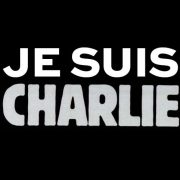L’art de tracer la ligne entre liberté d’expression et incitation à la haine raciale
Par Fiana Gantheret
English version available here
A la suite des évènements tragiques de janvier 2015 à Paris, un débat impliquant deux principes a resurgi : la liberté d’expression, d’une part, et la prohibition de discours appelant à la haine, de l’autre. La raison principale en est la mobilisation massive qui a suivie l’attaque de Charlie Hebdo. En effet, plus d’un million de personnes en France ont manifesté afin de proclamer « Je suis Charlie », et par là-même leur « attachement indéfectible à la liberté d’expression ». Une autre raison est qu’à la suite de la tuerie à Charlie Hedbo, qui a été suivie, entre autres, par une attaque à caractère antisémite, plus de 70 procédures ont été initiées pour apologie du terrorisme ainsi que pour incitation à la discrimination et à la haine raciale, en réaction à des propos tenus par des individus soutenant les actions des terroristes ou à tout le moins les minimisant. A cet égard, la Garde des Sceaux, Christine Taubira, a donné les instructions suivantes dans une circulaire aux parquets :
A l’heure où la France est frappée en plein cœur par le terrorisme et où les fondements même de la démocratie sont visés, le ministère public doit veiller à préserver les grands principes de la République et poursuivre son action de protection de la liberté d’expression, indissociable de la démocratie.
L’article 10 de la Convention européenne des droits de l’homme ainsi que les articles 10 et 11 de la Déclaration des Droits de l’Homme et du Citoyen proclament les principes de liberté d’opinion et d’expression qui ne peuvent être limités que dans les cas déterminés par la loi.
Dans ces moments où la nation doit montrer son unité, les propos ou agissements répréhensibles, haineux ou méprisants, proférés ou commis en raison de l’appartenance à une religion doivent être combattus et poursuivis avec la plus grande vigueur.

